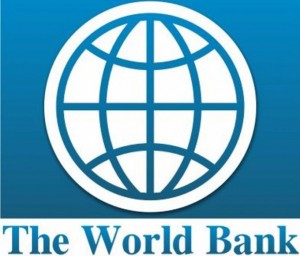World Bank hosts CSOs and private sector to discuss climate financing
 As part of climate change response measures, the World Bank, in partnership with the Climate Investment Fund (CIF) have engaged Africa Civil Society Organisations in Accra, to solicit their perspective on climate actions.
As part of climate change response measures, the World Bank, in partnership with the Climate Investment Fund (CIF) have engaged Africa Civil Society Organisations in Accra, to solicit their perspective on climate actions.
The CSOs and the private sectors actors are being engaged under the Africa Region Stakeholder Dialogue Workshop on CIF and other Climate Funds, to also explore ways to strengthen civil society and private sector participations in climate adaptation and mitigation.
Participants from countries that were implementing CIF projects, namely Ghana, Uganda, Kenya, Liberia, Sierra Leone, Cameroon, Niger, Burkina Faso, Nigeria, Gabon and Pakistan as well as the private sector were attending the two-day workshop that opened on Thursday.
Mr Pierre Frank Laporte, World Bank Country Director, in charge of Ghana, Liberia and Sierra Leone, said the impact of climate change as already been felt in Ghana and throughout Africa could not be over-emphasized.
He said climate change was a critical issue for the World Bank and had become one of its corporate themes because it was “impacting seriously on livelihoods and poverty” levels of people and so the workshop was, bringing together participants to discuss how best climate financing could be scaled-up with support from CSOs and the private sector.
He explained that the Bank tackles climate change through its own resources and from other Trust Funds like CIF, in providing funds for climate financing.
Mr Laporte mentioned that there were a set of actions that the Bank was currently implementing in countries and so it decided to engage the participants, especially the CSOs who were important stakeholders, to create awareness of such actions to them, and to partner them in their implementation.
He said in West Africa, the Bank had a number of climate actions, including the tackling of the impact of Coastal Management programmes, approved last year, and covering many countries from Senegal, Cote d’Ivoire, Benin, Togo and Sao Tome, and there was also the Forest Investment programme running in several countries including Ghana.
He explained that those projects were being financed with the CIF, and they were to help tackle the effect of climate change and human intervention and interferences on the forest
“The World Bank is committing several billions of dollars” towards the programmes including the West Africa Coastal management projects “that runs into billions of dollars” which also tallied with each countries Nationally Determined Contributions (NDCs).
The forest investment programme was also costing the Bank millions of dollars, and in Ghana alone, the country was receiving about 75 million dollars to tackle the forest project alone, he said.
He said, therefore, through the workshop, the Bank expected the CSOs to propose other things that could be done differently in helping accelerate the programmes.
The WB and CIF were currently implementing the Regional Off-Grid Electrification projects (ROGEP) that aimed at increasing electricity access of households and businesses using modern standalone solar systems through a harmonized regional approach.
The ROGEP, among others was helping transform the renewable energy sector, by developing standards for stand-alone solar systems for ECOWAS, initiating off-grid projects for health, educational Centres and productive uses in Nigeria and Niger as well as building the capacity of entrepreneurs to improve their skills.
That project that was funded with 150 million dollars as international development fund and 75 million dollars from CIF Clean Technology Fund, cover 19 countries in the Western and Sahel regions.
Mr Samuel Dotse, Chief Executive Officer of HATOF Foundation, a Ghana-based environmental CSO, said the workshop was so critical for civil society actors, especially in Ghana, whose role had been recognized globally “as people who work at the grassroots level, the opportunity to share their experiences and to learn more on climate financing.
He said the CSOs and the private sector in Ghana had “not been too well informed about the various multilateral and bilateral funds that are available in terms of climate mitigation and adaptation.
“I think it is an opportunity for the private sector in Ghana to now get themselves involved and develop their capacities in order for them to develop verifiable, bankable and financially viable projects for investment”, Mr Dotse said.
Source: GNA
